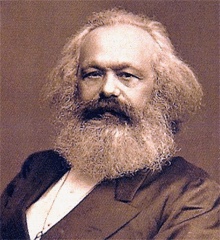According to one popular microeconomics textbook, an “external cost” is “an uncompensated cost that an individual or firm imposes on others,” while an “external benefit” is a benefit “that individuals or firms confer on others without receiving compensation” (Krugman & Wells Microeconomics 2015: 465).
This is the “textbook” definition of externalities. What should be clear, but is not, is that the “external cost” that an individual or firm imposes on others is, by definition a benefit to the individual or firm; similarly, an “external benefit” that an individual or firm confers upon others is a benefit for which they would be compensated if they could.
The failure of markets to automatically track externalities has led some progressive economists to embrace a very non-progressive solution: give a price to all externalities. It is the same solution vigorously promoted by radical right wing economic thinkers, such as Michael Walker of the Fraser Institute. Although few of you will have heard of Walker or the Fraser Institute, some may remember the segments from Achbar and Abbott’s 2004 The Corporation, in which Walker proposes precisely this solution.
It makes sense. Only when we know the real cost of anything (or the real benefit) can we make rational economic decisions. Except that the underlying premise of pricing is that all things, including things that are not things, have prices that are differentially related to the prices of all other things. And this holds true only in fully elaborated, highly integrated, capitalist economies. Only in capitalist economies does it make any sense at all to monetize things as outwardly different from one another as “family time,” “health,” neighborhood “amenities” such as green space, well-maintained roads, or a view of two bridges. Only in capitalist societies do we differentially value gender, race, ethnicity, and sexual orientation in highly rigorous mathematical models that actually predict and prescribe outcomes.
This is possible because in capitalist societies all things, including things that are not things, are valued in terms of a single social substance: homogeneous undifferentiated labor in the abstract. This means, on the one hand, that it makes good sense to measure the cost individuals and firms are compelled to pay for the carbon foot-print caused by the decisions made by others, an externality. On the other hand, it is only possible to measure this cost because all things, including things that are not things, have been reduced to the same abstract form.
But this also means that things as such have no value. And this is a problem.
Now let us say that we no longer measure value in terms of the abstract homogeneous labor time consumed in their production. To even suggest such a possibility is likely to make people nervous. How, if not in the differential relationships that they bear to one another, can we establish the value of things? Consider something simple like paid family medical leave. I have no other way to measure the value of this leave than in terms of the opportunity cost carried by my employer or by investors so that I can care for an ailing spouse, parent, or child. That is to say, the only way there is to value this time is in terms of abstract value. To even begin to talk about this time in other ways is to “wax poetic,” to resort to “metaphor,” to live in a “fantasy world.” In the hard-nosed bargaining that won workers family leave, all that mattered was the marginal cost and/or marginal benefit it placed on workers and/or employers.
But this also means that accurate pricing of externalities fails to address the underlying problem: our lost capacity even to think about value outside of its relationship to abstract homogeneous labor time.
Is it good to know the total value lost in our dependence on fossil fuels? Yes. Of course. On the other hand, so long as we are measuring this value — the value of property damaged and property lost to extreme weather events, the value of health care for individuals suffering a higher incidence of lung disease and cancers, the value of decreasing bio-diversity and growing dependence on genetically modified organisms — so long as we are measuring value in terms of its abstract value coordinate, we have lost sight of the values of things per se.
The bad news is that this loss is near universal. The good news is that it is extraordinarily recent. Out of the 2.4M years humans have occupied the planet, it is only over the last half millennia that human beings have lost the capacity to value things. In the cultural remains left to us, we have access to a rich, highly diverse, catalogue of ways communities have valued things in the past. Studying and exploring these communities is not simply a flight into the past. It had better be a flight into our very near future, or we very likely will have no future.
Finally, it cannot be overlooked that recalibrating how we value things offers a much more satisfying path to consideration of externalities. Bio-feedback mechanisms are everywhere. We need only learn how to read and listen to them.

